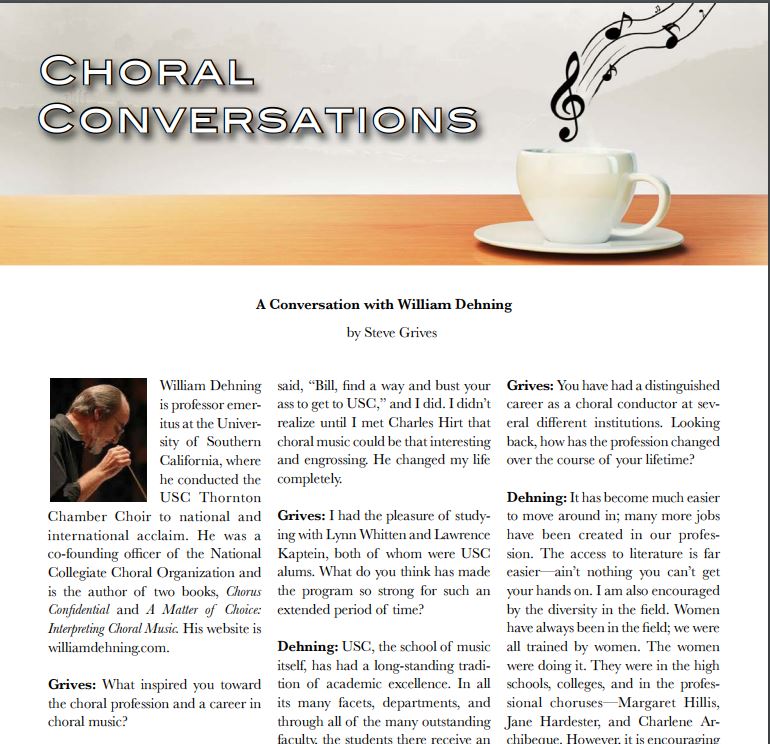
_____________________________
Choral Journal’s ongoing column called Choral Conversations” features interviews with noted choral conductors and composers. The third interview in this series took place with William Dehning in the September 2016 issue.
You can read the interview in its entirety online at acda.org/choraljournal. Click “Search Archives” and choose September 2016 from the dropdown menu.
_____________________________
You have had a distinguished career as a choral conductor at several different institutions. Looking back, how has the profession changed over the course of your lifetime?
It has become much easier to move around in; many more jobs have been created in our profession. The access to literature is far easier—ain’t nothing you can’t get your hands on. I am also encouraged by the diversity in the field. Women have always been in the field; we were all trained by women. The women were doing it. They were in the high schools, colleges, and in the professional choruses—Margaret Hillis, Jane Hardester, and Charlene Archibeque.
However, it is encouraging to now see women involved in even more areas of the profession and in even greater number in the schools, at the college level, professional choruses, in administration, and as composers. I hope we see even more women engaged and leading in the profession as time goes on. The same is true for the inclusion of international conductors and composers. I give credit to ACDA, NCCO, and IFCM for helping to facilitate these momentous changes.
Why should someone pursue graduate study in choral music?
Obviously, it will make you more marketable in terms of finding employment. But the main reason is to gain greater skill and great depth of knowledge in the field. For me, it helped me to know what to do, to know how to conceive a sound in my head and “go after it.” And also how to conceive of a score, interpret it, and bring it to life in my way: concept, conviction, courage.
I gained confidence in front of an ensemble and developed a strong rehearsal technique philosophy that I would go on to teach throngs of students. It was a chance for me to learn from world-class professors (e.g., Charles Hirt, Ingolf Dahl, Halsey Stevens) and learn alongside brilliant colleagues who would later become some of the most famous musicians in the world: Morten Lauridsen and Michael Tilson Thomas. Every day was an experience, and every day was a day learning to do what I loved with people who loved it the same way I did.
_____________________________
Read the rest of this interview (and more!) in the September 2016 issue of Choral Journal.


Leave a Reply
You must be logged in to post a comment.